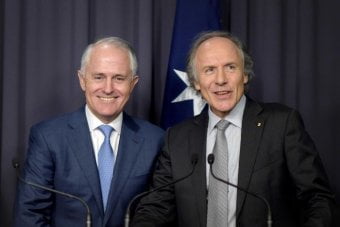Recycling garbage to produce energy is gaining traction in Australia, with a number of companies extracting gas from rotting rubbish to power homes and businesses.
Australia does not have one of the best waste recycling records in the world. A report last year by the Council of Recycling showed that Australia recycled just 41 per cent of that waste, compared with Germany on 65 per cent. In addition, Australia is the eighth largest producer of municipal waste per capita in the world.
That means a lot of landfill waste. Up to just a few years ago, that garbage just sat and rotted in our landfills, but things are changing.
Recycling garbage into energy for 80,000 homes
Cleanaway, Australia’s largest garbage company, says it has the potential to extract enough gas by recycling garbage to produce electricity for as many as 80,000 homes.

Chief Executive Officer Vik Bansal said: “Twenty years ago, this was all going to waste. The gas was getting “flared up in the environment, now it’s creating electricity,” he said.
Cleanaway is adding innovative, if relatively small, supplies of power as Australia debates its future energy mix and seeks to curb emissions.
The Melbourne based company sold 145,000 megawatt-hours of electricity to the grid from 120 million cubic metres of captured landfill gas last financial year, according to its annual report. The company has 11 of its own landfills, seven of which are providing electricity, Bansal said.
The company isn’t alone in turning rubbish to power.
263,000 megawatt-hours of electricity from Australian landfills
Another company making considerable contributions in terms of WtE is the NSW-based waste management company Suez, which was already able to produce 263,000 megawatt-hours of power from its landfills around the country back in 2014. Meanwhile, Veolia Environment, a French transnational company with presence in Australia, is able to recover enough gas from waste provide electricity to 2,500 homes from their site in NSW. The company projects that they will be able to generate enough for 12,000 homes from their Queensland facility within the next 10 years.
More on Cleanaway’s programs on recycling garbage to turn into energy, the firm has expanded its capacity to 8.8 megawatts in its Melbourne landfill – the company’s biggest site and the power should come online by October of this year. Mr Bansal said that the company expects to generate enough electricity for as many as 80,000 houses,
Australia struggling to find fuel to meet demand
Interestingly, Australia ranks among the world’s top gas and coal suppliers yet the country is somehow struggling to find enough energy sources to fulfil its own requirements. Along with this, citizens have also voiced concerns over the reliability of Australia’s energy security due to electricity price hikes and blackouts. Carbon emissions are also a cause of worry among Australians.

In response to some of the energy-related concerns, the Australian government has pledged to curb greenhouse gas emissions by at least 26% on 2005 levels by 2030 although politicians have yet to agree on how to reach that goal. As it is, politicians are also divided over Chief Scientist Alan Finkel’s clean energy target that seeks to limit the use of coal.
Based on a 2016 report by the Clean Energy Council, the country was able to generate 3,608 gigawatt-hours – roughly 1.5% of total electricity generation, merely from bioenergy or biogas which is captured from landfills and agricultural and forestry waste incinerated in power plants. The amount is enough to power 687,238 homes.
Eventually, forestry and agriculturally-sourced biofuel may pick up more slack in Australia’s energy mix, reaching up to 20%, if the country becomes more dependent on renewable energy sources, according to the Institute of Sustainable Futures at the University of Technology Sydney’s Sven Teske, an expert in renewable energy.
However, he also said that biogas generation may move in the opposite direction if Australia improves at recycling and produces less rubbish, becoming a “circular economy.”
Recycling business
Cleanaway, which collects rubbish from more than 90 municipal and 120,000 commercial and industrial customers, seeks to recycle between 60 and 95 per cent of discarded material before it reaches landfills, Bansal said.
Cleanaway made $87.9 million in underlying earnings before interest, tax, depreciation and amortisation from processing solid waste last financial year, a 47 per cent increase on the prior year, according to its annual results. It doesn’t break down earnings from electricity generation.
The company is investing more than $100 million in facilities for recycling liquid and solid waste and has been researching recycling and sustainability models in Europe and the US, Bansal said. The company provides sustainable waste management for customers including Chevron Corp. and Brisbane City Council.
“Every company now talks about sustainability,” said Bansal, who’s seen the company’s share price double since he became CEO in August 2015. “Nobody can achieve sustainability without managing waste. You’ve got to manage your waste because that is a massive carbon footprint.”Cleanaway aims to recycle between 60% to 95% of material discarded by their municipal, commercial, and industrial customers before they’re carted off to landfills.
Learn about the latest technological developments in energy
Recycling garbage to turn into energy, also known as the Waste-to-Energy process, is just one of the many topics covered in Leading Edge Energy’s blog. Want to get updates on energy prices, renewable energy technology, related government initiatives, and more? Check out our News and Blog sections!
Visit our case studies section to learn what we’ve done to reduce costs for companies all over Australia and see how we can help you. And when you’re ready, give our energy management consultants a call at 1300 852 770!












